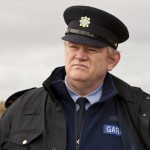Listen to Me Marlon Review
Posted on December 22, 2015 By John Gilpatrick 2015, Documentaries, Movie Reviews
Listen to Me Marlon is a one-of-a-kind documentary. There have been plenty of non-fiction films — plenty even this year with Amy, Kurt Cobain: Montage of Heck, and others — that chronicle the lives of famous people and their troubles with celebrity as a status. However, none are told with the emotional intensity of Listen to Me Marlon, about the late, great actor Marlon Brando, which uses its subject’s private audio recordings to share with us his triumphs, demons, and most intimate thoughts about his craft. Nor do most of them use 3-D digital scans of their deceased subject’s head to tell their stories. It’s a totally unsettling approach to a very familiar type of documentary, and Brando’s generally myopic, very introspective world view adds to Listen to Me Marlon’s ability to hypnotize its viewers, even if it (or he) doesn’t bring you in for a warm embrace.
The film introduces us to its storytelling method — these tapes which Brando recorded for himself as a form of self-analysis — before diving into Brando’s personal history. He grew up fearing and loathing his brute of a father. He found acting and studied method under Stella Adler. He married and had a child. He found great professional success but fell out of love quickly with the suffocating superficiality of Hollywood and the motion picture industry. He moved to Tahiti and had more children. He started taking roles for their paychecks. He suffered multiple personal tragedies and never completely recovered.
Brando has as complicated a legacy as any major figure in movie history. Many consider him the finest actor to ever grace the screen for his performances in On the Waterfront, The Godfather, and Last Tango in Paris, among many other films. On the other hand, he happily signed on to star in nonsense because he shunned so many aspects of the film industry and enjoyed milking it for every cent he could. (His infamous Apocalypse Now performance, it seems, lives somewhere between both poles of Brando’s legacy.)
So for film fans, Listen to Me Marlon is an essential historical document. Here’s an all-time great actor telling us everything good and everything bad about some of the most important performances in movie history. On the Waterfront? Coulda been better, according to the contender. The Godfather? One of his hardest scenes was Don Corleone’s death. And Last Tango in Paris? Invasive in all the wrong ways. (Brando loathed Bertolucci almost as much as he eventually loathed Coppola following Apocalypse Now.)
It’s perhaps Mutiny on the Bounty, however, that gets the most time, and as such, it might be fair to say it was his most personally important role. Not that he thought much of it, mind you. He thought the film was a disaster and wasn’t afraid to say as much to those in charge. That, among many other things I’m sure, led to delays, going over budget, and an end product that failed to satisfy. Brando shouldered a lot of that blame — something he’d do on future projects, as well, which is one of the things he most hated about the industry. At least Mutiny gave him Tahiti, though. The island paradise is without question where Brando felt most at home, and it’s where he married his third wife, who birthed his daughter Cheyenne.
That brings us to one of the film’s few issues — that of perspective. Of course, Listen to Me Marlon‘s narration method defines everything that takes place over 100 minutes. It also limits our perspective. On occasion, the film veers away from Brando’s recordings and presents us with news footage — like during the trial of Brando’s son, Christian, who killed Cheyenne’s boyfriend in 1990, but it’s typically on those occasions when you really want to hear from Brando. And at other times, you wish you could hear a third person take on what was going on in the man’s life — like when he declined his second Oscar.
But Listen to Me Marlon just isn’t that type of film, and even if it sometimes leaves you wanting more, its limited perspective is a gift. Brando’s mind is a sprawling, complicated place, and alone with himself, his thoughts are 100% lucid and honest — all over the place, yes, but also poetic and beautiful. The way he describes acting is both inspiring and horrifying. He’s a guy who cares so much about a lot of things but resents when his intense emotions aren’t matched by others, he withdraws. You see that with his craft. There’s love in his heart, but if that love can’t be perfectly reciprocated, he shuns it and, in fact, acts to disrupt and destroy the object of that love.
After watching the film, one can’t help but wonder what Brando would think of director Stevan Riley’s personal, arguably invasive creation. And after watching the film and learning about Brando’s, er, unique way of thinking, I have absolutely no idea what he’d actually think about it. That’s what makes him, and this film, so interesting.
2015, 3.5 Stars, Documentary, Gary Welch, Listen to Me Marlon, Marlon Brando, Ole Bratt-Birkeland, Peter Ettedgui, Stevan Riley

















Pingback: Reviews: Listen to Me Marlon (2015) – Online Film Critics Society